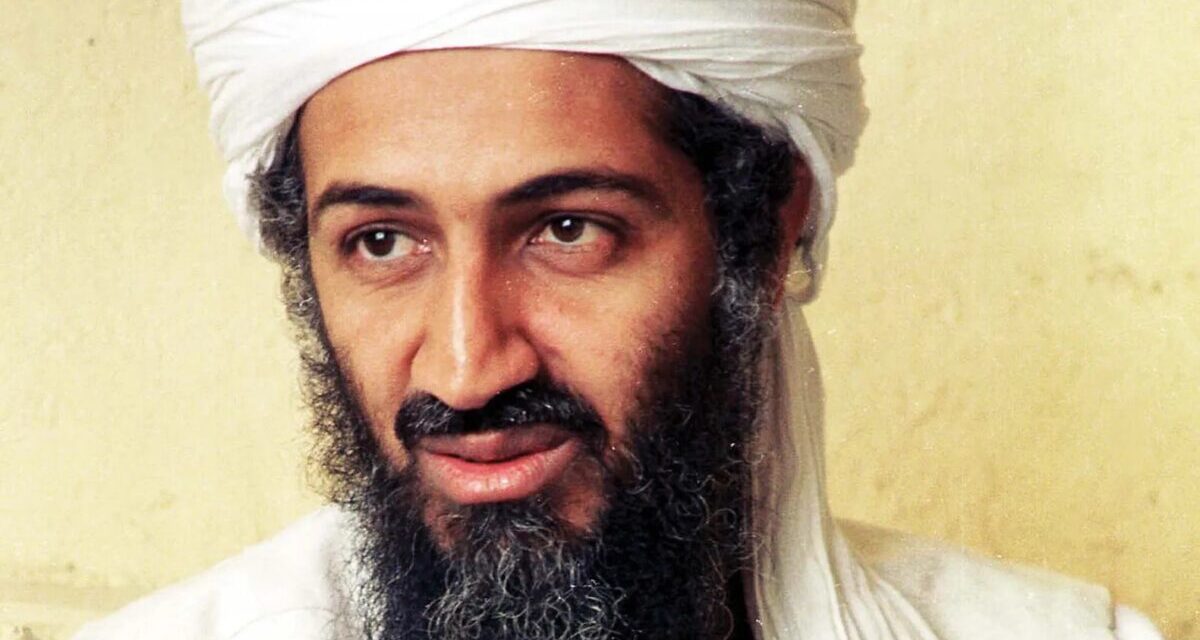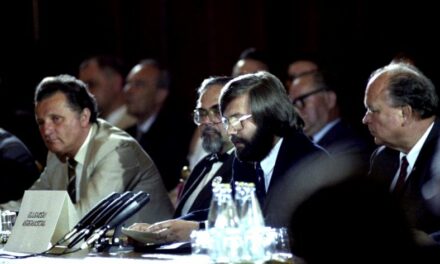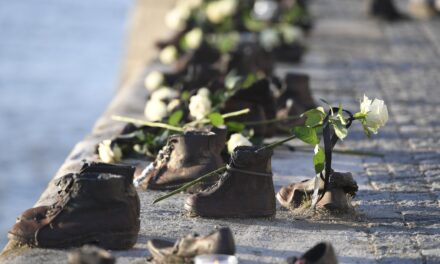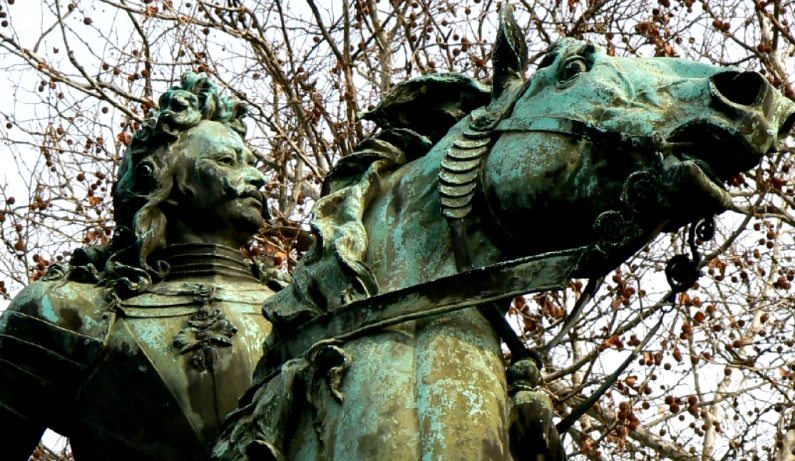No one would have ever thought that one of the dreaded practitioners of terrorism, the perpetrator of the September 11, 2001 attacks in the United States, who was killed 12 years ago by American commandos in his hideout in Pakistan, would return to the media in such an unexpected and overwhelming form.
The phenomenon spreading like wildfire has several mutually stimulating causes. TikTok, Generation Z, Israel's war with Hamas and the British newspaper The Guardian. All of these brought the dreaded terror kingpin, the former leader of the al-Qaeda terrorist organization, into the media and into its social form again, Politico wrote in the summary of the media frenzy that started this week .
The terrible September 11th, or 9/11, terrorist attack - during which hijacked airliners were driven into hundred-story skyscrapers and the Pentagon, claimed the lives of 3,000 innocent Americans - well, a letter from its mastermind, bin Laden, began to circulate about a year later . The 4,000-word letter and its translation, referred to as the Letter to the American People, were circulated and became a source of reference primarily within extremist Islamist groups.
Finally, it was first published by The Guardian in 2002. If we click on this letter now, we can see that this week the British newspaper removed the document, which was exposed for more than 20 years, and replaced it with an article that explains in detail what the letter says.
The Guardian also added a short warning that they were forced to do so because too many people misinterpreted it by using details taken out of context.
In the letter, however, bin Laden criticized the American leadership very harshly, primarily because of its role in the creation and support of the State of Israel.
But what does Generation Z have to do with all of this?
After more than a month ago, Hamas militants unexpectedly broke into Israel and killed 1,400 people, and after the Israeli air and ground offensive against Gaza killed more than ten thousand civilians, the bin Laden letter unexpectedly started to spread again on the Internet.
Surprisingly, on the Chinese-owned media platform TikTok, whose users are mostly members of Generation Z. The majority of American tiktokers are under 30 years old, and many were born after the 2001 terrorist attack. In the short videos uploaded one after the other, they began quoting from bin Laden's letter and reflected on how good it is to see the historical connections leading to 9/11 in a new approach and interpretation through writing.
Understanding comments were made regarding the part of the letter that accuses America of a serious mistake in its continued support of Israel, at a time when more and more Western European countries are criticizing Israel's current policy.
More and more people shared the letter and their opinions about it. Some have "finally opened their eyes" and others have gone so far as to claim that mass murderer bin Laden was right. CNN reported this week that 14 million comments on the letter had already appeared on social media as of Thursday .
Although TikTok has indicated that it does not agree with this offensive content, which is against its user rules, and does not support any form of terrorism. Even though they launched an investigation into how certain content was uploaded, they couldn't get the genie out of the bottle back, even though they deleted a large amount of Letter to America videos and took down #lettertoamerica.
Well, this big cleaning wave resulted in the move The Guardian mentioned at the beginning of this article.
The Streisand effect is back
With the move that The Guardian took down Osama bin Laden's letter, because they believed that this could limit the wider distribution of the document, they practically lit the embers and people started searching for it like wildfire, because they became curious about what it was all about.
This is a classic example of the Streisand effect, when someone tries to remove some content from the Internet or censor it for a cause, and thereby draws the attention of the Internet society to the topic, which then generates an explosion of interest.
What does politics say about all this?
In the United States, there are politicians across the political spectrum who believe that the Chinese-owned TikTok is clearly spreading anti-American propaganda and should therefore be blocked. stated on X, that is, on his previous , that TikTok is openly trying to influence Americans by using pro-terrorist propaganda. According to him, TikTok should either be banned or acquired by an American company. Republican Senator Josh Hawley also sees the app as a propaganda tool, the most effective surveillance system ever devised and used by a foreign government.
But who was Osama bin Laden?
Index contacted one of the experts on the topic. In Mária Bordás's gap-filling work published in 2019 - Islám caliphate in the 21st century? - thoroughly covered the subject of bin Laden. To our question, the university professor said that Osama bin Laden is undoubtedly the most interesting figure in the history of the contemporary Middle East. He was the creator of the ideology of global terrorism, which is based on radical Islam. The point is that Islam made it its most important goal to attack the West and Israel, ultimately driving them out of the holy land of Islam. Bin Laden, despite the fact that he had already organized bomb attacks against American targets in the Middle East and Africa in the 1990s, became known worldwide after the September 9, 2001, terrorist attack on the territory of the United States. In recent decades, countless terrorist leaders have risen in the Middle East and North Africa, and then disappeared into obscurity, but bin Laden is the only one who, even during his lifetime and since then, was surrounded by religious respect in the Islamic world.
Bin Laden was born in 1957 in Riyadh, the capital of Saudi Arabia, the son of one of the richest Saudi businessmen. His parents divorced, he rarely met his father, he was raised by his mother. He was ten years old when his father died, from whom he inherited a fortune worth tens of millions of US dollars. He studied business management at the universities of Saudi Arabia and Jeddah, and then worked for a short time in the family business. At the age of 17, she married her Syrian cousin in a love marriage. He later married five more times as a result of arranged marriages and was divorced twice. He always had four wives (according to the Koran, the maximum number of wives a Muslim man can have at one time) because he believed that the teachings of the Koran required him to do so. He had approximately twenty children, most of whom we don't have any information about, added the NKE university professor.
To the legitimate question of how a Saudi billionaire became the world's best-known terrorist leader, the expert answered: The official religion of Saudi Arabia, according to the teachings of which bin Laden was raised, is Wahhabism, the most orthodox religious trend of Islam, which is the enemy of the Egyptian Muslim Brotherhood. to modern Islamic fundamentalism and radical Islam created by
The development of Bin Laden's radical Islamist views was influenced by two religious ideologues: his mentor from his teenage years, Abdullah Azzam, a supporter of Salafism (a 19th-century socio-religious resistance movement against European colonialism), a Palestinian Islamic scholar who is considered the "father of global jihad", and Ayman al-Zawahiri, an Egyptian doctor who later became a member of the Muslim Brotherhood and founded his own terrorist group called Egyptian Islamic Jihad. The two Islamist leaders competed for influence over bin Laden, which finally ended with Azzam's death in 1989 when he was killed by a bomb hidden in his car. Many suspect al-Zawahiri behind the attack. After that, al-Zawahiri became al-Qaeda's strategic planner, its "gray eminence."
The charismatic leader
Bin Laden was a charismatic leader, educated, a millionaire, and had a good media presence. In the pictures, he is usually seen with a Kalashnikov machine gun, which refers to the Islamic tradition that has existed since Mohammed, according to which the leader of the Muslims is expected to be a religious, state and military leader at the same time. Bin Laden actually participated in the battles in Afghanistan, he lived among his fighters, in puritanical conditions, which made him popular even then, his fighters respected him so much that they called him Sheikh.
Another reason for his popularity was that he took the ideology of radical Islam to a new level in the form of global terrorism and proclaimed
the west, especially the United States, must not only be driven out of the holy land of Islam, but Americans must also be attacked in western territory.
By this time, the view that western colonialism and later American intervention caused the modernization crisis had become common in the Islamic world.
Bin Laden was convinced by his mentor Azzam to go to Afghanistan in the 1980s and fight against the Soviet invaders on the side of the Mujahideen (Afghan fighters). Using his own financial resources, Bin Laden established military training camps in the tribal areas of Pakistan and then recruited militants from the Middle East with whom he fought against the Soviets. After the Soviet withdrawal, the returning bin Laden was celebrated as a hero in Saudi Arabia, and following his success, he believed that the Americans could also be expelled from the Middle East. From the beginning, Bin Laden was not a supporter of Wahhabism, in fact he admired the radical Islamist revolution in Iran and the 1979 attack on the Grand Mosque in Mecca by radical Islamists.
Bin Laden feuded with the Saudi royal family
Bin Laden eventually came into serious conflict with the Saudi royal family, which refused bin Laden's offer to use its own armed forces to fight in the Gulf War against a suspected Iraqi attack. (Saddam Hussein had invaded Kuwait in 1990 and was afraid that he would attack Saudi Arabia as well.) However, the Saudi royal family accepted military aid from the United States instead of bin Laden's militants, who established American bases in Saudi Arabia. Bin Laden perceived all this as a desecration of the holiest places in Islam, Mecca and Medina, located in Saudi territory, and then made inflammatory speeches against the Saudi royal family. Much later, in 2003, already from Afghanistan, he organized a terrorist attack in a neighborhood inhabited by Americans in Riyadh, which resulted in 39 deaths.
Bin Laden eventually broke with the Saudi royal family, which stripped him of his Saudi citizenship and froze his bank accounts, and in the early 1990s he and his family went to Sudan, where another Islamist dictatorship operated under Colonel Omar al-Basir, who welcomed him. Moreover, over time, he received significant government orders in the construction industry there, as a result of which he became a rich man again.
In Sudan, he met al-Zawahiri, with whom he created the al-Qaeda terrorist organization, with bin Laden as its leader and al-Zawahiri as his deputy, which did not merge with al-Zawahiri's own terrorist organization, Islamic Jihad in Egypt.
After bin Laden organized terrorist attacks against the American embassies in Dar-es-Salaam, Tanzania and Nairobi (Kenya) in 1998, which left hundreds dead and thousands wounded, the Sudanese government expelled him from the country in 1996 under American pressure. As a guest of Mullah Omar, the first leader of the Taliban, Bin Laden arrived in Jalalabad, a city in eastern Afghanistan, where tens of thousands of jihadist fighters were already waiting for him in his military camps. Al-Qaeda did not cooperate with the Taliban, which represents primitive radical Islam and pursues local goals.
Bin Laden was already thinking globally
In 1996, he issued his first fatwa (a binding directive issued by religious leaders on a religious or political issue), in which he declared war against the United States, which occupied the two holiest places in Islam, Mecca and Medina. In another fatwa, issued in 1998, he made it obligatory for Muslims to kill all Americans and their allies, whether they are civilians, businessmen or soldiers, whether they are in the Holy Land of Islam or in Western territories.
By 1998, bin Laden was already in the CIA's field of vision, and American fighter jets began bombing al-Qaeda's military camps in Jalalabad. Bin Laden therefore took refuge with his family and militants in caves in the high, rocky mountains of Tora Bora near Kandahar. US attack helicopters tried unsuccessfully to capture bin Laden in Tora Bora.
After the terrorist attack in the United States on September 11, 2001, Mullah Omar did not extradite bin Laden even at the request of the Americans, the reason for which was that according to Pashtun customary law, the guest must be protected even at the cost of the host's life. The US military then overran Afghanistan, but bin Laden managed to escape to the Pakistani city of Abbotabad.
He lived there with his family for ten years, while the CIA searched for him with great efforts, and finally in 2011, an American special unit, the Navy Seals, killed him together with several family members in his own house. In accordance with Islamic traditions, bin Laden's body was buried in the sea within 24 hours, another reason being that they did not want bin Laden's grave to become a holy pilgrimage site in the Middle East.
Epilogue
Bin Laden's sons did not support their father's terrorist activities, and several managed to leave Tora Bora. His fourth son, Omar, became an advocate for peace and wrote a book with his mother, Nadja, bin Laden's first wife, "Life in the Bin Laden House." Only one of his sons, Hamza bin Laden, who, like his father, had charismatic qualities, decided to succeed his father as the leader of al-Qaeda. According to unconfirmed sources, the CIA also liquidated him in 2021 - concluded Mária Bordás' summary of bin Laden.
Featured image: Osama bin Laden, founder of the terrorist group al-Qaeda / Universal History Archive/Getty Images












